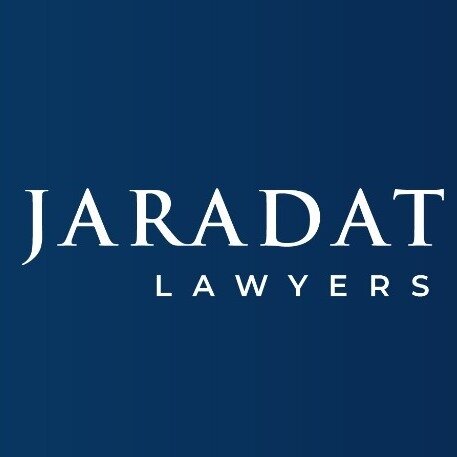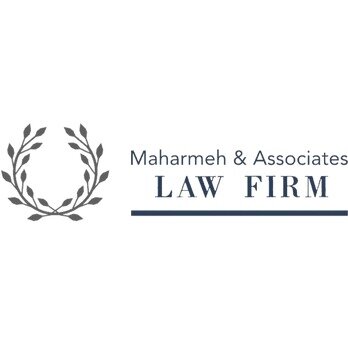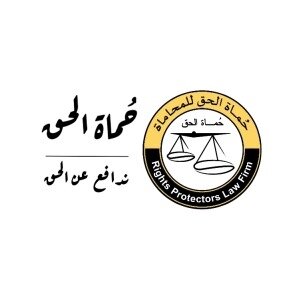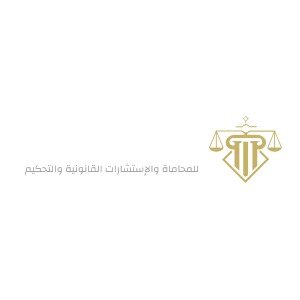Best Mining Law Lawyers in Amman
Share your needs with us, get contacted by law firms.
Free. Takes 2 min.
List of the best lawyers in Amman, Hashemite Kingdom of Jordan
About Mining Law in Amman, Hashemite Kingdom of Jordan
Mining Law in Amman, the capital of the Hashemite Kingdom of Jordan, is governed by a combination of national laws, regulations, and government policies. The primary legal framework for mining operations across the country is set by the Jordanian Mining Law and implemented by the Ministry of Energy and Mineral Resources. These laws establish the principles for the exploration, licensing, extraction, and exportation of mineral resources such as phosphate, potash, and other industrial minerals. Given Jordan's rich mineral reserves and the economic importance of the sector, mining law is essential for regulating the industry, protecting public interests, and ensuring sustainable development.
Why You May Need a Lawyer
Several situations might require you to consult with or hire a lawyer specializing in Mining Law in Amman:
- If you are a local or foreign investor seeking to explore or exploit minerals in Jordan and require legal guidance on permits and compliance.
- If you are negotiating agreements related to mining rights, joint ventures, or mineral sales.
- If you have disputes with government agencies, landowners, or commercial partners over mining licenses or land use.
- If you are facing enforcement action, penalties, or revocation of mining licenses due to alleged regulatory non-compliance.
- If there are environmental or social impacts arising from mining operations, leading to legal claims or the need for compliance with environmental law.
- If you need assistance with due diligence, mergers, acquisitions, or financing involving mining interests in Jordan.
Local Laws Overview
Mining activities in Amman and throughout Jordan are mainly regulated by Mining Law No. 12 of 2010 and its amendments, as well as various executive regulations and guidelines. Key aspects of these local laws include:
- Licensing and Permits: All mining activities require government-issued licenses, with strict requirements for application, evaluation, and ongoing compliance. Licenses are typically issued by the Ministry of Energy and Mineral Resources, often in consultation with other stakeholders.
- Ownership of Minerals: The state retains ownership of all mineral resources within Jordanian territory. Private individuals or companies can only extract or trade minerals with express government authorization.
- Foreign Investment: Foreign entities are permitted to participate in Jordan's mining sector, but may face additional requirements or restrictions according to national policies and security considerations.
- Environmental Protection: Mining operations must comply with environmental regulations set by the Ministry of Environment, including requirements for impact studies, mitigation plans, and rehabilitation of mining sites.
- Land Use and Community Rights: Mining activities must consider land use laws and the interests of affected communities, which can involve consultation and compensation obligations.
- Dispute Resolution: Disputes arising from mining operations are typically subject to Jordanian courts, but arbitration clauses may be included in contracts, especially with foreign investors.
Frequently Asked Questions
What governmental body regulates mining activities in Amman?
The Ministry of Energy and Mineral Resources is the main regulatory body overseeing mining activities in Amman and the rest of Jordan.
Can foreign companies obtain mining licenses in Jordan?
Yes, foreign companies can apply for mining licenses, although they may be subject to certain restrictions or mandatory joint ventures with local parties in some cases.
What is the process for obtaining a mining license?
Applicants must submit a formal application to the Ministry of Energy and Mineral Resources, including technical and financial plans, environmental impact assessments, and proof of legal status.
Are there environmental regulations for mining projects?
Yes, mining projects must undergo environmental assessments and comply with ongoing regulation by the Ministry of Environment. Rehabilitation of sites after mining is also mandatory.
Who owns the minerals extracted in Jordan?
All mineral resources within Jordan are owned by the state. Extractors can exploit and sell minerals only with appropriate licensing.
Can individuals own land used for mining operations?
Individuals or companies may own or lease land, but must obtain additional government approvals to conduct mining activities on such land.
What taxes or royalties apply to mining operations?
Mining operators are required to pay royalties to the state, as well as other taxes and fees as stipulated by the mining license and relevant laws.
What happens if a mining company breaches local regulations?
Violations can lead to penalties, suspension or revocation of licenses, and potential legal proceedings before administrative or judicial bodies.
How are disputes over mining licenses resolved?
Disputes can be addressed through the Jordanian court system or, if stipulated in contracts, through arbitration.
Are there local content requirements for mining operations?
The government encourages the use of local labor, goods, and services where possible, but specific requirements vary from project to project and are detailed in license agreements.
Additional Resources
To support your understanding of Mining Law in Amman, consider referencing the following resources and organizations:
- Ministry of Energy and Mineral Resources: The primary governmental authority for mining regulation and licensing.
- Natural Resources Authority: Provides data and technical support regarding mineral resources and deposits.
- Ministry of Environment: Regulates environmental aspects and impact assessments for mining operations.
- Jordanian Bar Association: Can help you find qualified lawyers specializing in mining and natural resources law.
- Official Gazette of Jordan: Publishes updates to mining laws, regulations, and announcements of new decrees.
Next Steps
If you require legal advice or representation concerning Mining Law in Amman, follow these recommended steps:
- Gather all relevant documents and information about your mining interests or project, including permits, contracts, land titles, and correspondence with authorities.
- Identify the specific issue or legal need you have, such as licensing, contract negotiation, regulatory compliance, or dispute resolution.
- Contact a qualified lawyer or law firm in Amman with expertise in mining, energy, or administrative law. You can use the Jordanian Bar Association directory or seek recommendations from industry associations.
- Request an initial consultation to discuss your case and understand your legal options, obligations, and potential outcomes.
- Maintain ongoing communication with your legal advisor and ensure compliance with all deadlines and legal requirements relevant to your matter.
By taking these steps, you can ensure that your interests are protected and that you comply with all legal requirements governing mining activities in Amman, Hashemite Kingdom of Jordan.
Lawzana helps you find the best lawyers and law firms in Amman through a curated and pre-screened list of qualified legal professionals. Our platform offers rankings and detailed profiles of attorneys and law firms, allowing you to compare based on practice areas, including Mining Law, experience, and client feedback.
Each profile includes a description of the firm's areas of practice, client reviews, team members and partners, year of establishment, spoken languages, office locations, contact information, social media presence, and any published articles or resources. Most firms on our platform speak English and are experienced in both local and international legal matters.
Get a quote from top-rated law firms in Amman, Hashemite Kingdom of Jordan — quickly, securely, and without unnecessary hassle.
Disclaimer:
The information provided on this page is for general informational purposes only and does not constitute legal advice. While we strive to ensure the accuracy and relevance of the content, legal information may change over time, and interpretations of the law can vary. You should always consult with a qualified legal professional for advice specific to your situation.
We disclaim all liability for actions taken or not taken based on the content of this page. If you believe any information is incorrect or outdated, please contact us, and we will review and update it where appropriate.















